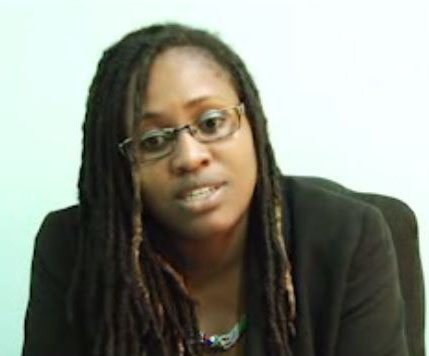Minister of Public Service Tabitha Sarabo-Halley says government will continue to award scholarships for University of Guyana (UG) law graduates to pursue their Legal Education Certificate (LEC) at the Hugh Wooding Law School (HWLS) next year if it is re-elected.
Speaking with this newspaper recently, Sarabo-Halley said the Department of Public Service has not yet decided on how many scholarships will be offered, but added that the number will not exceed four (4), which is the number of scholarships that were offered earlier this year.
Sarabo-Halley also explained that the selection criteria will remain the same, that is, one scholarship will be awarded to the top graduating LL.B student, while a combined criteria or aptitude and a means test will determine the recipients of the other scholarships.
The LEC is the final academic certification which an LLB graduate from UG must acquire to qualify to be admitted to practice law in Guyana’s courts, and any other jurisdiction party to the Agreement Establishing the Council of Legal Education (CLE). These jurisdictions include Barbados, Trinidad and Tobago, Jamaica, the Organisation of Eastern Caribbean States (OECS), and The Bahamas.
Every year, approximately 65 persons graduate from UG’s Department of Law with an LL.B.
Of this number, only the top 25 graduates gain automatic entry to the HWLS, located in Trinidad and Tobago, to read for their LECs. All other persons, including persons who did not gain entry in prior years, may seek entrance by way of the school’s annual entrance examination.
Regardless of the mode of entry, the mammoth economic cost of pursuing the LEC often ends or delays students’ pursuit of the LEC. For the 2019/2020 academic year, total fees for Year One Guyanese students currently stand at TT$101,292.38 (approximately G$3,038,771 at a rate of TT$1 – G$30), while Year Two tuition fees stand at TT$98,066.00 (approximately G$2,941,980 at a rate of TT$1 – G$30). Total tuition fees, therefore, stands at around G$6,000,000. Importantly, these fees continue to increase by a minimum of 3 per cent annually.
Additionally, accommodation can cost anywhere from around TT$1,700 – TT$2,400 (approximately G$51,000 or G$72,000 respectively at a rate of TT$1 – G$30) per month for shared accommodation, and around TT$2,400 to TT$3,400 (approximately G$72,000 to G$102,000 respectively at a rate of TT$1 – G$30) per month, or even higher, for a single bedroom apartment.
Apartments in closer proximity to the school tend to be at the higher end of the price spectrum, while apartments further away tend to be less expensive, but also less convenient.
Students must also find funds for food, and school-related expenses.
This year, Simran Gajraj (Grade Point Average (GPA) 3.8), Thalia Thompson (GPA 3.5), Melissa Adolphus (GPA 3.4), all distinction students, and Nakesha Cosbert (GPA 3.3), a credit student, were selected following an extremely competitive process. Gajraj was the Department’s best graduating student this year.
Thompson, Adolphus, and Cosbert were all selected based on a combination of their academic performance, and their ability, or lack thereof, to afford the expense of HWLS on their own.
To qualify for this scholarship, Sarabo said, applicants, with the exception of the top student, will have to obtain a satisfactory GPA, and demonstrate that but for the scholarship, they will not be able to continue one to the HWLS.










